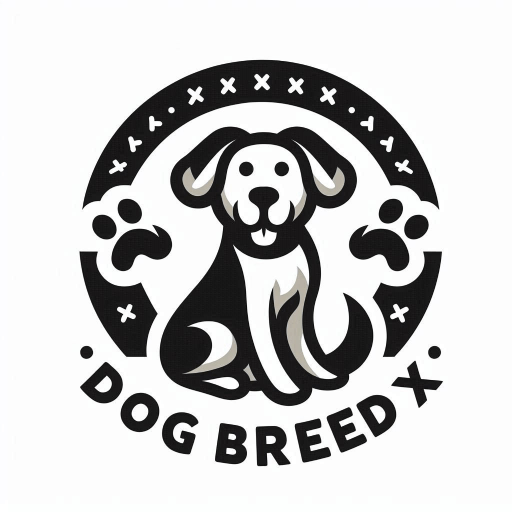Table of Contents
Korean Jindo Dog Breed
The Korean Jindo Dog is a breed renowned for its unwavering loyalty, intelligence, and spirited nature. Originating from South Korea, this dog has captured the hearts of many for its strong protective instincts and remarkable ability to form close bonds with its owners. The Korean Jindo is not just a pet; it’s a companion that embodies courage, independence, and a deep sense of devotion. Whether you’re looking for a faithful guardian or a loyal friend, the Jindo might be the perfect breed to consider.
History and Origin
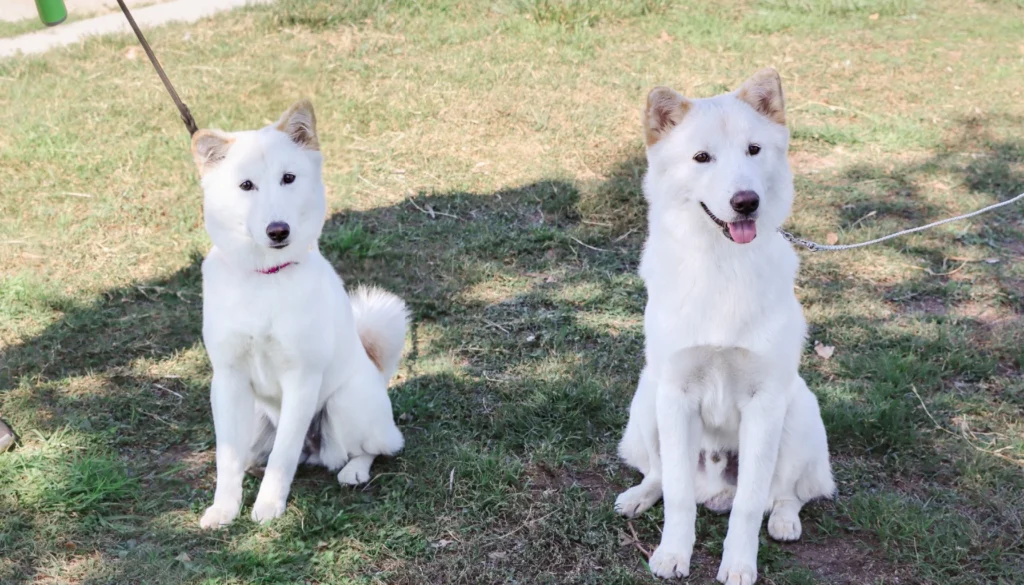
The Korean Jindo Dog has a rich history deeply intertwined with the culture and heritage of Korea. The breed hails from Jindo Island, located in South Korea, where it has been known for centuries as a national treasure. The exact origins of the Jindo are somewhat mysterious, but it is believed that these dogs have existed on Jindo Island for several thousand years.
The breed was traditionally used for hunting due to its exceptional tracking abilities and courage. Jindos were often employed to hunt large game, such as wild boar and deer, which they could pursue with tenacity and skill. Over time, the Jindo became more than just a hunting dog; it evolved into a loyal companion and guardian for the people of Jindo Island.
In 1938, the Korean government recognized the Jindo as a national treasure, and efforts were made to preserve and protect the breed. Today, the Jindo is celebrated not only in Korea but also around the world for its unique qualities and rich cultural significance.
Physical Characteristics
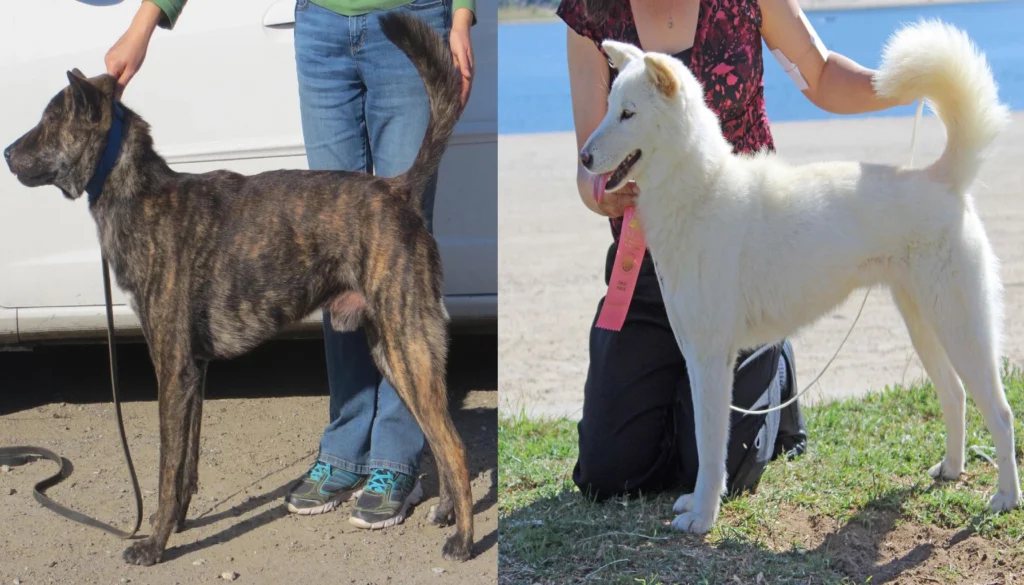
The Korean Jindo Dog is a medium-sized breed known for its well-proportioned and athletic build. Here are some key physical characteristics:
- Size: Jindos typically stand between 18 to 22 inches tall at the shoulder and weigh between 35 to 50 pounds. Males are generally larger and more muscular than females.
- Coat Type: The Jindo has a double coat, which consists of a dense, soft undercoat and a straight, harsh outer coat. This coat helps the dog withstand harsh weather conditions, particularly cold temperatures.
- Colors: Jindos come in a variety of colors, including white, red, brindle, black, and tan. The most common color is red or tan, while the white Jindo is particularly prized in Korea.
- Distinctive Features: One of the most notable features of the Jindo is its curled tail, which is carried proudly over the back. The breed also has almond-shaped eyes that convey a keen and intelligent expression.
Temperament and Personality
The Korean Jindo Dog is known for its strong-willed and independent nature. However, beneath this independence lies a deeply loyal and affectionate companion. Jindos are incredibly devoted to their families and are often described as one-person dogs, meaning they tend to form a particularly strong bond with one individual in the household.
- Loyalty: Jindos are fiercely loyal and protective of their families. They are natural guardians and will not hesitate to defend their home and loved ones if they sense a threat.
- Intelligence: This breed is highly intelligent and quick to learn. However, their intelligence comes with a streak of independence, which means they may not always be eager to please their owners like some other breeds.
- Interaction with People: Jindos are generally reserved and cautious around strangers. They are not aggressive by nature but can be wary of unfamiliar people. Early socialization is crucial to ensure they are well-adjusted and comfortable in various situations.
- Interaction with Children and Other Animals: Jindos can be good with children, especially if raised with them, but they may not tolerate rough play. Their hunting instincts can make them less compatible with small pets like cats, although they can coexist peacefully with proper training and supervision.
Health and Lifespan
The Korean Jindo Dog is generally a healthy breed, but like all dogs, it can be prone to certain health issues. Being aware of these potential problems and taking steps to maintain your Jindo’s health is crucial for ensuring a long and happy life.
- Common Health Issues: Some of the health concerns that may affect Jindos include hip dysplasia, hypothyroidism, and allergies. Regular veterinary check-ups and a healthy diet can help manage and prevent these issues.
- Lifespan: The average lifespan of a Korean Jindo is around 12 to 15 years. With proper care, some Jindos may live even longer.
- Tips for Maintaining Health: To keep your Jindo healthy, ensure they receive regular exercise, a balanced diet, and routine veterinary care. Dental hygiene is also important, as periodontal disease can be a concern in this breed.
Care and Grooming
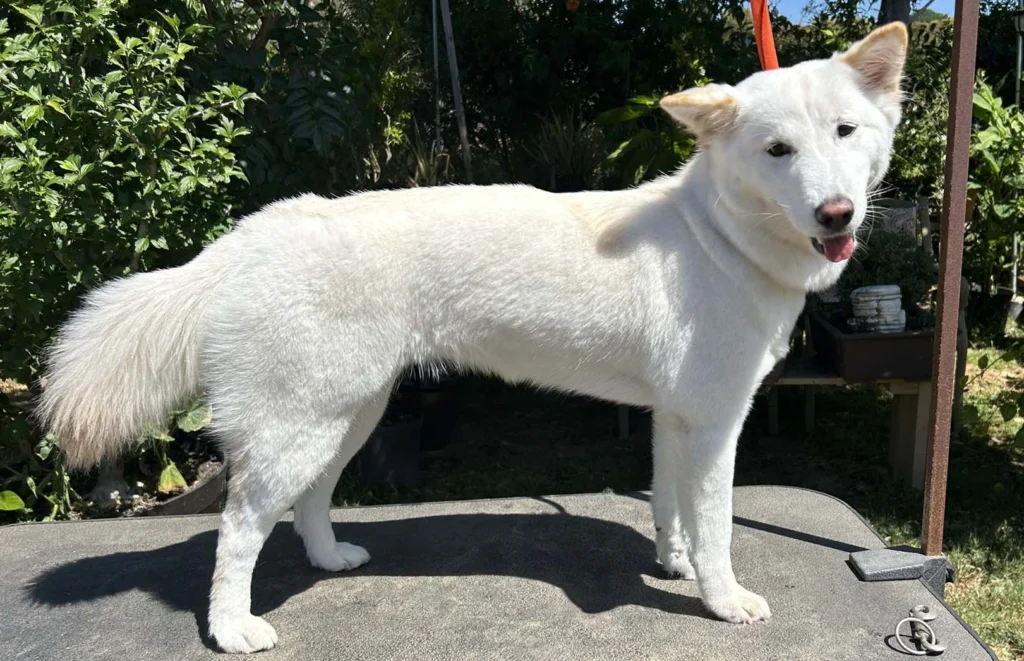
Caring for a Korean Jindo Dog involves understanding their specific grooming needs, exercise requirements, and dietary considerations.
- Grooming Needs: Jindos have a double coat that sheds seasonally, particularly in the spring and fall. During these times, more frequent brushing is necessary to manage shedding and keep their coat healthy. Regular brushing once or twice a week is usually sufficient during the rest of the year. Bathing should be done only when necessary, as over-bathing can strip the coat of its natural oils.
- Exercise Requirements: Jindos are an active breed with a high energy level. They need daily exercise to stay physically and mentally healthy. This can include long walks, jogging, or playtime in a securely fenced yard. Jindos also enjoy activities that challenge their minds, such as puzzle toys or agility training.
- Dietary Recommendations: A high-quality diet that meets the nutritional needs of an active dog is essential for a Jindo. Protein should be a significant component of their diet to support their muscle mass and energy levels. Consult your veterinarian to determine the best feeding schedule and portion sizes for your individual dog.
Training and Socialization
Training and socializing a Korean Jindo Dog can be both rewarding and challenging due to their intelligence and independence.
- Training Challenges: Jindos are known for their strong-willed nature, which can make training a challenge, especially for first-time dog owners. Consistency, patience, and positive reinforcement techniques are key to successful training. Harsh or punitive methods should be avoided, as they can damage the trust and bond between you and your Jindo.
- Socialization Tips: Early socialization is crucial for Jindos to ensure they grow into well-adjusted adults. Exposing them to a variety of people, places, and experiences from a young age will help them become more confident and less wary of strangers.
- Training Recommendations: Focus on basic obedience training first, such as commands like sit, stay, and recall. Given their hunting background, Jindos may have a strong prey drive, so leash training is essential to prevent them from chasing after small animals.
Suitability as a Family Pet
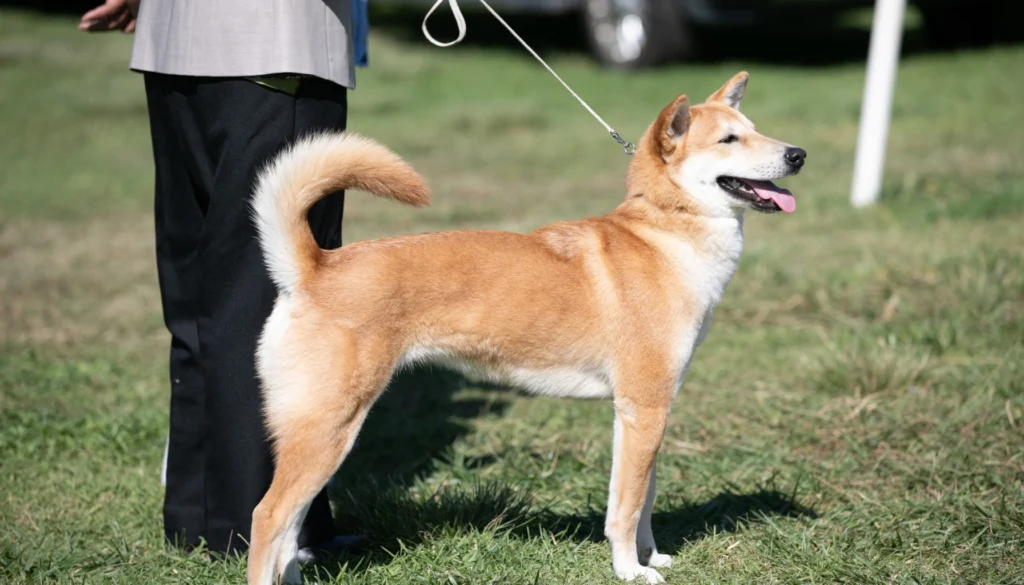
The Korean Jindo Dog can make a wonderful family pet, but it’s important to consider whether this breed fits your lifestyle and living situation.
- Living Environment Considerations: Jindos do best in homes with a secure yard where they can run and play. They can adapt to apartment living if they receive ample exercise, but this is not their ideal environment. Due to their strong protective instincts, they may not be suitable for households with frequent visitors or small children who may not understand the dog’s boundaries.
- Energy Levels: Jindos have moderate to high energy levels and need regular physical and mental stimulation. They are not couch potatoes and will require daily exercise to prevent boredom and destructive behaviors.
- Compatibility with Families: Jindos can be excellent companions for families with older children who understand how to interact with dogs respectfully. They are loyal and protective, making them good guardians, but they may be too reserved or independent for families looking for a highly social and easygoing dog.
Fun Facts and Trivia
Here are some interesting facts about the Korean Jindo Dog that you might not know:
- National Treasure: The Korean Jindo is recognized as a national treasure in South Korea and is protected by law to preserve its purity.
- Return to Home: Jindos have a remarkable homing instinct. There are many stories of Jindos traveling great distances to return to their owners after being separated.
- Independent Hunters: Historically, Jindos were known to hunt independently, often returning with game without human assistance. This speaks to their intelligence and resourcefulness.
Dog Breeds Similar to the Korean Jindo Dog



If you’re interested in the Korean Jindo Dog, you might also want to consider these similar breeds:
1. Shiba Inu
The Shiba Inu is a small to medium-sized dog from Japan that shares many characteristics with the Jindo, including a strong-willed personality, intelligence, and independence. Like the Jindo, Shibas are known for their loyalty and can be reserved around strangers.
2. Akita
The Akita is another Japanese breed that is larger and more powerful than the Jindo. Akitas are known for their loyalty, courage, and protective nature, making them excellent guardians. They also share the Jindo’s independent spirit and require a confident and experienced owner.
3. Basenji
The Basenji is a small, athletic dog from Africa known for its hunting prowess and independent nature. Like the Jindo, the Basenji is intelligent, reserved with strangers, and requires plenty of mental and physical stimulation.
Conclusion
The Korean Jindo Dog is a breed that offers unwavering loyalty, intelligence, and a unique spirit. While they may not be the easiest breed to train or socialize, the rewards of owning a Jindo are immense for those who appreciate their qualities. Whether as a guardian, companion, or hunting partner, the Jindo is a breed that embodies both tradition and the deep bond between humans and dogs.
If you’re considering adding a Korean Jindo to your family, take the time to research and ensure that this breed fits your lifestyle. With proper care, training, and understanding, a Jindo can become a beloved member of your household.
FAQs
Is the Korean Jindo Dog a dangerous breed?
The Korean Jindo Dog is not inherently dangerous, but it is a breed with strong protective instincts. They can be wary of strangers and are very loyal to their families. With proper training and socialization, Jindos can be well-behaved and gentle companions. However, they may not be the best choice for inexperienced dog owners or households with small children.
Is the Korean Jindo Dog the best guard dog to protect my family?
The Korean Jindo Dog is an excellent guard dog due to its loyalty, intelligence, and natural protective instincts. They are vigilant and will alert their owners to any potential threats. While they make great protectors, it’s important to ensure they are properly trained and socialized to avoid over-guarding or aggressive behavior.
